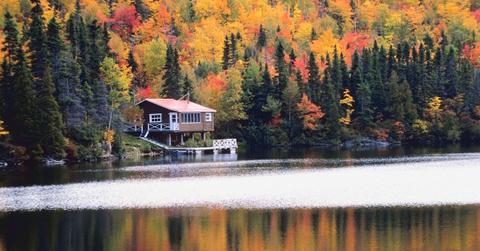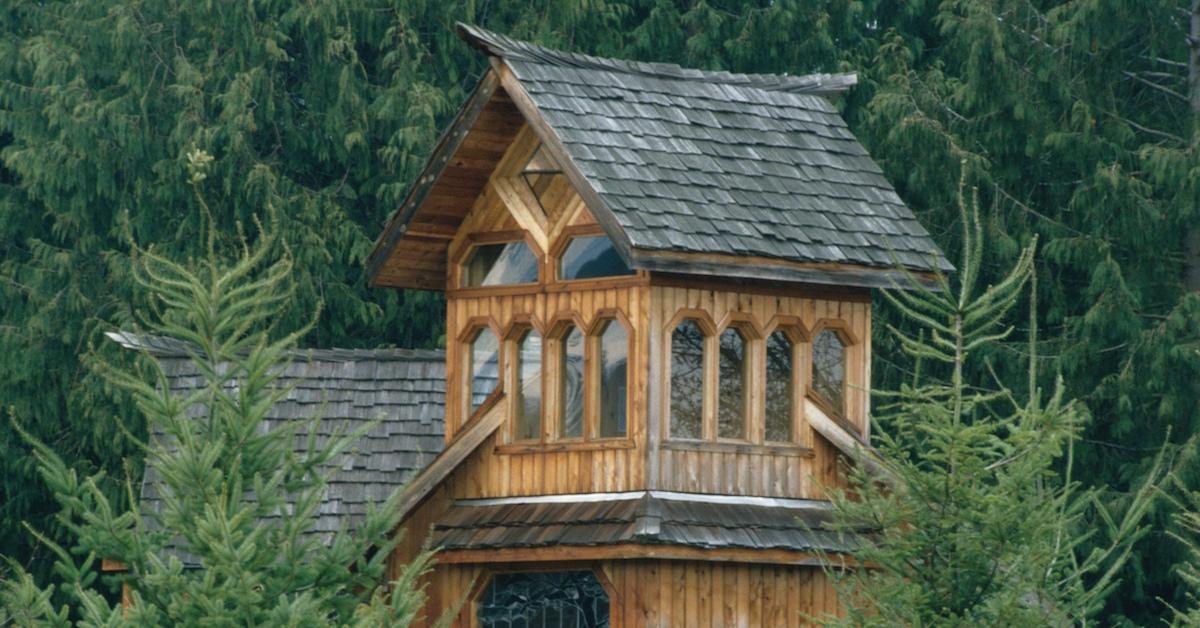‘Building Off the Grid’ Is More Than Just Entertaining TV — the Lifestyle Can Be Sustainable
Published June 8 2021, 2:41 p.m. ET

For the majority of people, living off the grid used to be synonymous with freedom, independence, and, in some rare cases, writing a manifesto in a cabin in the woods. Thankfully, television shows like Building Off the Grid have disavowed people of that erroneous definition of the term.
These days, living off the grid is more about living as sustainably as possible. It isn’t about being disconnected from the electrical grid or even society, but about self-sufficiency.
What is 'Building off the Grid' about?
Building Off the Grid first aired on back in 2014, and it has played on both the DIY Network and Discovery Channel. The popular television program features teams of people racing against the clock to build creative homes in remote, often isolated locations like Alaska or Montana. These builders are often forced to work in the most extreme conditions imaginable, like incessant rain, severe temperatures, and the occasional wilderness pitfall, often for long hours.
The show’s competitors might be some of the best DIY fixer-uppers on reality TV, but even they are challenged by the tough conditions, tight deadlines, and sometimes uninhabitable locales that they are charged to face each episode. The show has been on for 11 seasons, all of which are available on streaming services like Amazon Prime Video.

Living off the grid can be super sustainable.
Off-the-grid homes represent one of the most sustainable ways to live, though the lifestyle itself isn’t inherently more sustainable. You still have to work at wasting less, growing more, and using fewer nonrenewable resources. The difference comes in the form of opportunity. When all of your options rely on self-sufficiency and self-control, you have fewer opportunities to be lazy or flippant about what you choose to use.
You can control your own electricity usage, water usage, and fuel usage. In certain areas, renewable energy is far more accessible for homeowners than it ever was before. According to LeafScore,18.9 percent of Canada’s primary energy supply is provided by renewable sources.
Important lessons about off the grid living:
There are a couple of things that folks need to understand before jumping into life off the grid. First and perhaps most importantly, is preparation. If the show has taught us anything, it’s that building and eventually living off the grid is not going to be easy.
You’ll face struggles that you never imagined in terms of food preparation and storage, electricity, internet connection, clean water, and septic issues. You'll face unpredictable weather and wildlife. The best way to avoid being caught unawares is to learn everything you can about what might await you.
According to An Off Grid Life, your first priority should be to learn the basics behind the usage and repair of solar panels, charge panels, batteries, generators, inverters, and the like. You should read up on toilets and water systems. For heating, you might have to buy coal, propane, or cordwood, none of which is cheap. It’s entirely possible you’ll have to fell your own timber for wood and building.
If you plan to grow your own food, you will need to bone up on your agricultural and gardening knowledge. It’s important to know how to preserve food the right way to avoid spoilage and sickness.
On top of all that, there is the cost. Just because an off-grid house isn’t in the suburbs does not mean it is immune to things like homeowner’s insurance. An Off Grid Life testifies that they paid five times more for homeowner’s insurance for their off-the-grid house than they did when they lived on the grid. These are important factors to consider, so choose wisely.